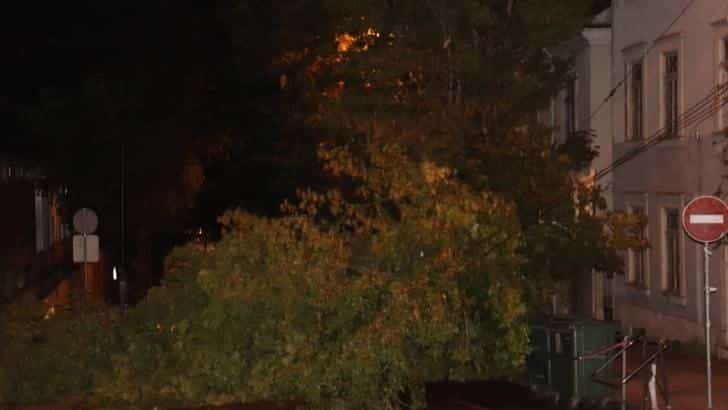Two days since downgraded hurricane Leslie slammed into Portugal and there are still as many as 60,000 households are without power.
This affirmation comes in today’s newspapers, thus the situation could be improving by the hour.
But telecommunications company Altice has confirmed that it too has been struggling to restore service in the areas most affected – Coimbra, Aveiro, Leiria and Viseu.
Meantime more information has come through on damages caused by winds and rainfall that have seen councils declare situations of calamity.
The mayor of Coimbra told reporters on Sunday that he would be declaring public calamity.
Since then the mayor of Soure has followed suit.
Both expect repair costs in their boroughs to exceed a million euros.
Added to the toll of destruction caused by winds that have been estimated at up to 190 kms/ hour has been a caravan park in Figueira da Foz – described by its residents now as a ‘caravan cemetery.
All in all, total damages for Leslie’s powering over Portugal will run to many millions of euros as councils and Civil Protection still gather details.
In Marinha Grande, for example, mayor Cidália Ferreira has described damage to schools, roads, green spaces (mainly caused by fallen trees), private properties and beachside areas.
Like other mayors, she is hoping to receive the benefit of public finance. But right now, the difficulties are in trying to resume normality with weather conditions still adverse, she said.
Initial reports that two people in Portugal died as a result of the storm have been revised: the deaths were simply coincidental. But in France where Leslie hit on Sunday night, the situation has been a great deal worse: 13 people are reported to have died as a result of flash flooding, and one more is still missing.
This far, Portugal’s final injury toll has remained at 28 people – none of them seriously hurt.
Science website phys.org writes that “only five hurricanes have ever arrived in this region of the Atlantic Ocean” – the last being Ophelia which fanned the strong winds that fed deadly forest fires last October.














